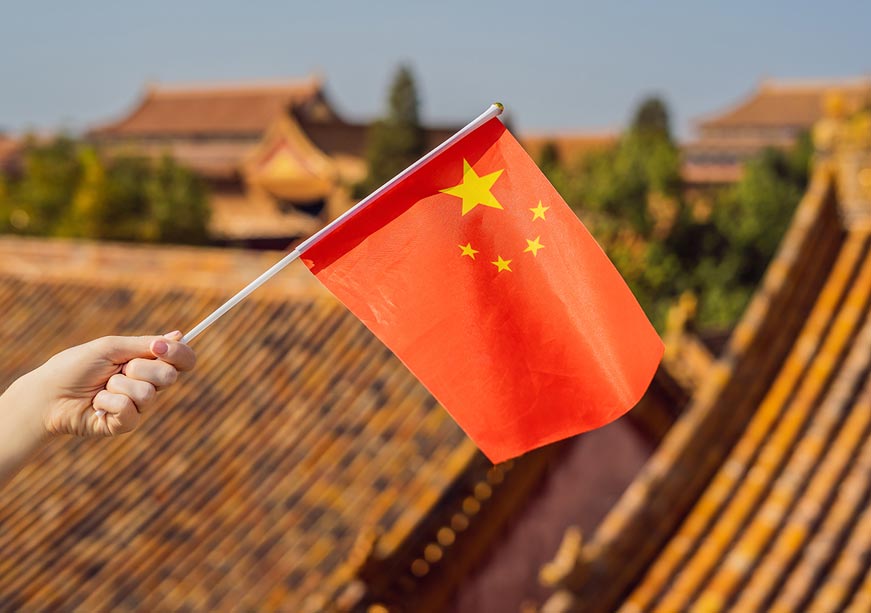-
CENTRES
Progammes & Centres
Location
China is increasingly pressuring its firms to prioritise national security over profit, especially regarding investments in India, amid growing economic and geopolitical concerns

Image Source: Getty
The Panama port incident has taken the Chinese strategic community by storm. On 4 March 2025, Cheung Kong Hutchison, owned by Hong Kong tycoon Li Ka-Shing and family, currently operating important ports at both ends of the Panama Canal, announced a huge deal to sell all of Hutchison Port assets outside mainland China and Hong Kong—spanning 45 ports in 20 countries— to the BlackRock-TiL consortium for US$ 22.8 billion.
The starting point of this deal can be traced back to January when the United States (US) President Donald Trump raked up the issue of Chinese control of the Panama Canal during his inauguration speech. In the following months, under pressure from the US top brass, the Panamanian authorities launched a financial audit of Hutchison Ports' Panama subsidiary in late January. Following the US Secretary of State Mark Rubio’s visit in early February, pressure from Panamanian officials escalated. As a result, Cheung Kong Holdings found itself at risk of losing all its Panama port assets, leading to the deal’s conclusion.
The incident reportedly infuriated the Chinese government and triggered a public uproar in China. Questions doing the rounds are: if companies such as TikTok or Huawei could choose to resist US pressure, why did the Li Ka-Shing group choose to ‘cash out and leave’? Why did the company not seek timely intervention and coordination from the Hong Kong Special Administrative Region (SAR) government? Why were Chinese companies— such as China Merchants Port and China Ocean Shipping Group—not considered for the deal? Moreover, why were Hong Kong and mainland port assets retained, despite accounting for a small proportion of the company’s business? Was it an attempt to bypass official Chinese approval?
The new port operators may charge Chinese shipping companies additional fees or even refuse entry to certain ports.
China’s main concern is that the transaction involves many important ports globally. Once the transaction is complete, the US company will be able to control these ports and implement differential treatment for Chinese shipping companies. The new port operators may charge Chinese shipping companies additional fees or even refuse entry to certain ports. Such measures could increase the cost of Chinese exports and weaken China’s overall global industrial competitiveness.
An angry Chinese commentariat accused the Li family of treason, arguing they have received great favours from the country, but their actions in return have been deeply disappointing. For other Chinese enterprises going global, the message emanating from Beijing is clear: “It’s time for those who are still dreaming of capital without borders to wake up”. The logic of ‘business is business’ is no longer tenable, “entrepreneurs who had grown prosperous by relying on the support of consumers have to prioritise national interest over commercial interest”.
The above incident is not an aberration, it is increasingly becoming a trend in China, where Chinese enterprises are often put to the patriotism test. In 2023, when Chinese construction engineering company Xuzhou Construction Machinery Group (XCMG) celebrated the rollout of its 2,000th excavator in its Indian factory, a big outrage ensued in China’s online circles. The company was accused of aiding the enemy and committing treason by a section of the Chinese strategic community. Ever since, there has been an ongoing campaign against Chinese enterprises that have already set up units in India or are seen participating in India’s “Make in India” initiative. They are being labelled ‘traitors’ and ‘enemy collaborators’, accused of jeopardising China’s national security for ‘petty gains’. One example often cited in all Chinese analyses is the rise of India’s mobile phone industry, which many Chinese observers lament has happened with major contribution from Chinese mobile phone companies.
The company was accused of aiding the enemy and committing treason by a section of the Chinese strategic community.
There seems to be a strong consensus among Chinese strategic circles that the government must restrain Chinese companies from investing in India, or at least prevent them from establishing a complete industrial chain. Reports have emerged that earlier this year, China prevented Chinese employees from travelling to Foxconn’s iPhone factories in India and recalled those stationed there. It also halted shipments of specialised manufacturing equipment for iPhone production in India. China’s export restrictions on Tunnel Boring Machines to India have also been widely reported. There has also been news about Chinese automakers being officially prohibited from investing in India and thereby retaining their core technologies.
The latest outrage in China is about Chinese enterprises investing in India’s steel sector. A prominent example fuelling heated debate in Chinese strategic circles is about China Minmetals Corporation, a subsidiary of China Metallurgical Construction Group Corporation, collaborating with Tata Steel in building a blast furnace with an annual output of 4.375 million tons. Various articles on the Chinese internet criticised the development, accusing Chinese companies of shooting themselves in the foot by assisting India's manufacturing industry, particularly at a time when India is contemplating putting a 25 percent tariff on Chinese steel.
A prominent example fuelling heated debate in Chinese strategic circles is about China Minmetals Corporation, a subsidiary of China Metallurgical Construction Group Corporation, collaborating with Tata Steel in building a blast furnace with an annual output of 4.375 million tons.
The Chinese side lamented that the technology for the market model between China and India is not viable, as there has been a rapid expansion in India’s steel production capacity (as per Chinese assessments, Indian steel production capacity increased by 48 percent). The competitiveness of Indian steel in the global market has gradually increased (steel prices are 15 percent lower than China), which has brought new challenges to the Chinese steel industry in terms of technological innovation, standard setting and talent cultivation. This has not only brought down China's steel exports to India, but also squeezed the share of Chinese companies on the international stage, especially in Southeast Asian and African markets. Chinese analysts have warned that if India's steel production capacity is further improved, it will further help the Indian government to develop its military and invest more resources in the production of tanks, armored vehicles, artillery shells and other weapons targeting China. Therefore, Chinese enterprises should desist from assisting India in infrastructure construction and setting up basic industries, especially those related to steel, energy, electricity, and transportation.
It is important to note that despite such strong public opinion pressure, Chinese PC manufacturer, Lenovo, recently announced its plans to move all its PC production lines from China and Mexico to India in the next three years and to build an AI server factory in Pondicherry. Its competitors, HP and Dell, are also accelerating the transfer of production to Southeast Asia and India. Some supporting suppliers such as ASRock, Zotac and other companies have also moved out simultaneously. In the Chinese assessment, the current round of migration of tech firms is a direct impact of the Trump administration's tariff policy. For instance, Lenovo, which holds nearly 12 percent share of the US market, faces a 10-15 percent cost increase due to Trump's 20 percent tariff policy on China and a proposed 25 percent tariff on Mexico, directly threatening its price competitiveness and hence its “big bet” on India.
Chinese observers expect larger companies, relying on their capital strength, to strengthen localisation in the US, while small and medium-sized manufacturers to seek “friendly alternatives” in India and elsewhere.
The Chinese strategic community is bracing up for more such rounds of migration in the coming days, as the global industrial chain and supply chain get re-adjusted under the new round of tariff war. Chinese observers expect larger companies, relying on their capital strength, to strengthen localisation in the US, while small and medium-sized manufacturers to seek “friendly alternatives” in India and elsewhere. Given the vulnerabilities facing Chinese enterprises, one might wonder if stoking the fire of nationalism is a part of the Chinese strategy to buy more time and gain leverage in this new round of supply chain reshuffling.
Antara Ghosal Singh is a Fellow with the Strategic Studies Programme at the Observer Research Foundation.
The views expressed above belong to the author(s). ORF research and analyses now available on Telegram! Click here to access our curated content — blogs, longforms and interviews.

Antara Ghosal Singh is a Fellow at the Strategic Studies Programme at Observer Research Foundation, New Delhi. Her area of research includes China-India relations, China-India-US ...
Read More +